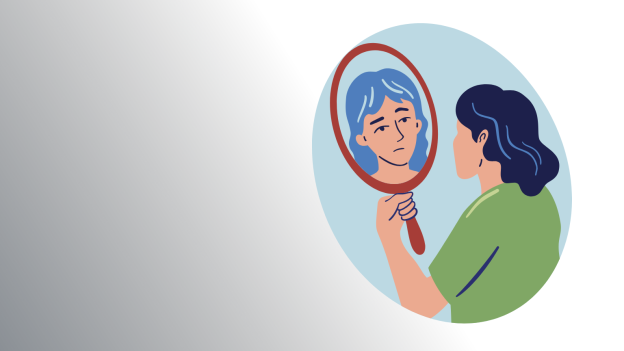Let’s talk about Eating Disorders
Around 9% of Americans will encounter an eating disorder at some point in their lifetime. People struggling with an eating disorder often become obsessed with food, body image, and/or weight.
Due to their impact on the body, eating disorders can cause significant health consequences and if left untreated, can be life-threatening. However, there are many treatments available that help lead people to recovery.
Symptoms
Symptoms vary depending on the type and severity of eating disorder. Here are four types of eating disorders and their symptoms.
Anorexia nervosa
Anorexia nervosa is based on restricting food intake and extreme weight loss. People with anorexia have an intense fear of gaining weight, are obsessed with their body size, and have a disturbance in self-image. Additional physical symptoms due to limited food intake include dehydration, dizzy spells, feeling cold due to poor circulation, and extreme tiredness.
Bulimia nervosa
Bulimia nervosa is based on a cycle of binge eating (i.e., eating a large amount of food in a short period of time) and compensatory behaviors (i.e., behaviors to counteract the binge eating behavior, like purging or using laxatives). Additional symptoms include disturbance in self-image.
Binge eating disorder
Binge eating disorder is based on recurrent binge eating episodes without the use of compensatory behaviors. Additional symptoms include eating in secret or alone, feeling guilt and shame after binge eating, and eating until uncomfortably full.
Other specified feeding or eating disorder (OSFED)
Other specified feeding or eating disorders are eating disorders that cause significant distress or life impairment but do not meet criteria for other eating disorders. Symptoms include any of those listed above.
If you or someone you know is experiencing symptoms, check your risk by taking our eating disorder screening.
Treatment
Treatment will vary depending on the type of eating disorder, but most treatments include a multidisciplinary approach consisting of psychotherapy, nutritional counseling, medical, and psychiatric monitoring. Treatment focuses on the forces that contribute to the maintenance of eating disorders, restoring normal eating patterns, and the medical consequences that stem from eating disorders (National Eating Disorders Association, 2022).
It is important to know that treatment for mental health conditions are tailored to the individual and the information presented here are just a few of the many different treatment options.
Psychotherapy
Psychotherapy is a form of treatment conducted by a trained and licensed therapist (i.e., psychologist, social worker, or counselor). The therapist provides a supportive environment for individuals to talk openly about their mental health condition(s) and emotional challenges with someone who is objective and non judgmental. There are many different types of psychotherapy, but in general the therapist and patient work together to identify causes of their mental conditions, developing coping mechanisms, and challenge thinking and behavioral patterns.
Nutritional counseling
Nutritional counseling is conducted by a nutritionist or dietician and is focused on repairing relationships with nutrition, mind, body image, and movement. Dietitians address vitamin and mineral deficiencies, hydration, meal planning, weight restoration or maintenance, and more. Every person with an eating disorder is different and therefore nutritional counseling is tailored to the individual (Eating Disorder Hope, 2023).
Medications
While there are medications that have been used for the symptoms of eating disorders, medications are mainly used when co-occurring mental health conditions are present. Many people with eating disorders also have depression, anxiety, trauma, etc. Even though the medications prescribed are not treating the eating disorder symptoms, treating other mental health conditions help facilitate the treatment of eating disorders (Eating Disorder Hope, 2023).
It is important to consult with a medical provider before taking any medications.

Resources
Looking for information, tools or resources for mental health?
Visit our online resource library, where you’ll find tools and apps to support your mental health and wellness, information about mental health and common mental health conditions, on-demand videos and trainings, interactive tools to help you build wellness and safety plans, research and reports, resources for schools and workplaces, and much more!

